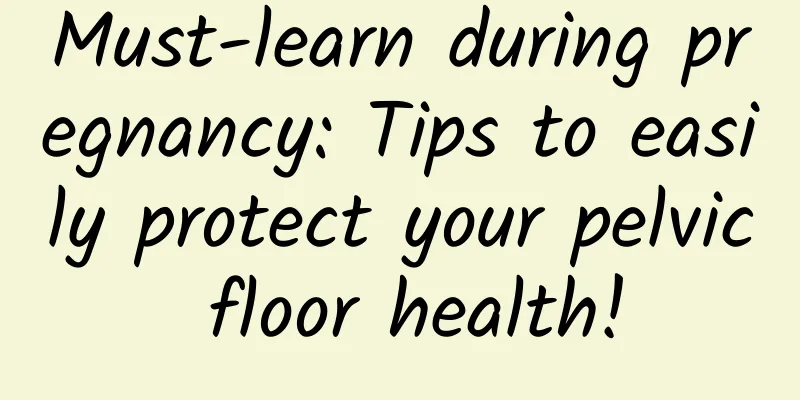Will 72-hour emergency contraceptive pills delay menstruation?

|
Many women want to know whether taking emergency contraception while taking contraceptive measures will affect their menstrual period, or whether taking birth control pills will affect the arrival of their menstrual period. Long-term use of birth control pills by women will indeed cause great harm to the human body, and will also cause certain damage to various parts of the human body. So how long will it take for menstruation to come after taking birth control pills for 72 hours? How long does it take for my period to come after taking the contraceptive pill for 72 hours? In fact, how long it takes for your period to come after taking birth control pills depends a lot on whether you take it in the first ten days or the last ten days of your menstrual cycle. If you take it within the first ten days, your menstrual period may come earlier than usual, because taking it within the first ten days will have a greater impact on your menstrual period. Generally, bleeding will occur one week after taking it. At this time, the female hormone in the blood temporarily rises due to the one-time increase in the contraceptive pill, and then decreases to produce withdrawal bleeding. In fact, this is not a menstrual period. It is just that sometimes the bleeding is similar to the normal menstrual flow, so it is treated as a menstrual period. The menstrual cycle is then created again. If there is only bleeding, this may not be a problem. If you take it a dozen days after your menstrual period, it will not have a big impact on your menstrual period and generally will not easily affect your normal cycle time. All emergency contraceptives have their side effects, and the 72-hour contraceptive pill is no exception. Common side effects include: 1. Nausea and vomiting: The incidence rate of different drugs is different, among which mifepristone has the lowest incidence rate, which is 6%-7%. Nausea and vomiting usually last no more than 24 hours. 2. Vomiting: The incidence rate varies with different drugs, about 5% for levonorgestrel and about 1% for mifepristone. It is generally believed that taking medicine with food or before going to bed can reduce the incidence of nausea and vomiting, but there is no accurate clinical data. 3. Irregular uterine bleeding: Some women may experience vaginal spotting after taking the medicine, which generally does not need to be addressed. 4. Changes in menstrual period: Most women have their menstrual period on time, but some women have their menstrual period earlier or later. If your period is delayed for a week, you should do a urine pregnancy test to determine if the contraceptive pill is unsuccessful. Groups that cannot take contraceptive pills 1. Patients with serious illnesses Because hormones need to be metabolized in the liver and excreted through the kidneys, taking the medicine will increase the pressure on liver and kidney function. Therefore, it is not suitable for patients with acute or chronic hepatitis or nephritis. 2. Patients with blood diseases and endocrine diseases Emergency contraception can make blood coagulation more active and increase the risk of thrombosis. It can also increase blood sugar and affect thyroid hormone. Therefore, patients with various blood diseases, thrombotic diseases, endocrine diseases such as diabetes, and hyperthyroidism should avoid using it. 3. Gynecological tumor patients Because most gynecological tumors and breast diseases are growth hormone-dependent diseases, taking emergency contraceptives containing estrogen and progesterone may aggravate the condition and should be avoided. 4. Mental illness Mental patients who cannot be independent in daily life may take medicine too frequently or take it incorrectly, causing more serious adverse effects. 5. People aged 45 and above At this time, female hormones fluctuate greatly, so contraceptives should generally not be used. Also, the female friends in this stage are generally in menopause and usually need to supplement female hormones and estrogen. |
<<: Will taking birth control pills affect menstruation?
>>: Can I get pregnant if I take birth control pills during the safe period?
Recommend
Does a humidifier help dry skin? Let's take a look~
Whether you struggle with dry skin due to these f...
Are today's cars worse than before? Why were there so few cars with problems in the past?
Many people feel that today’s cars always have pr...
Causes of stomach pain before menstruation
Period is what we often call menstruation. During...
Here are all the details about leucorrhea with blood
The secretion of leucorrhea is a normal physiolog...
Why is it so painful to breastfeed after childbirth? Is there any way to relieve the pain of breastfeeding after childbirth?
Generally speaking, pregnant mothers usually brea...
Endometrium 13mm but no menstruation
What are the reasons for the sudden delay of more...
How to treat uneven follicular development?
If the follicles cannot meet the requirements of ...
The test paper is positive for seven days after medical abortion
After undergoing medical abortion, if a woman use...
Symptoms of vitamin B2 deficiency in women
Vitamin B2, also known as vitamin B2, is a yellow...
Can I eat mutton after having an abortion?
In today's social life, with the gradual chan...
Will your appetite increase during pregnancy?
Most women will experience changes in their gastr...
What are short-term oral contraceptives?
After getting married, many couples are not in a ...
What should I do if my stool is dry during confinement?
There are several groups of people who are partic...
What causes pain in the left lower abdomen of women?
Women are very prone to pain in the left lower ab...
What foods can increase women's sexual desire?
For female friends, if they want to improve their...









